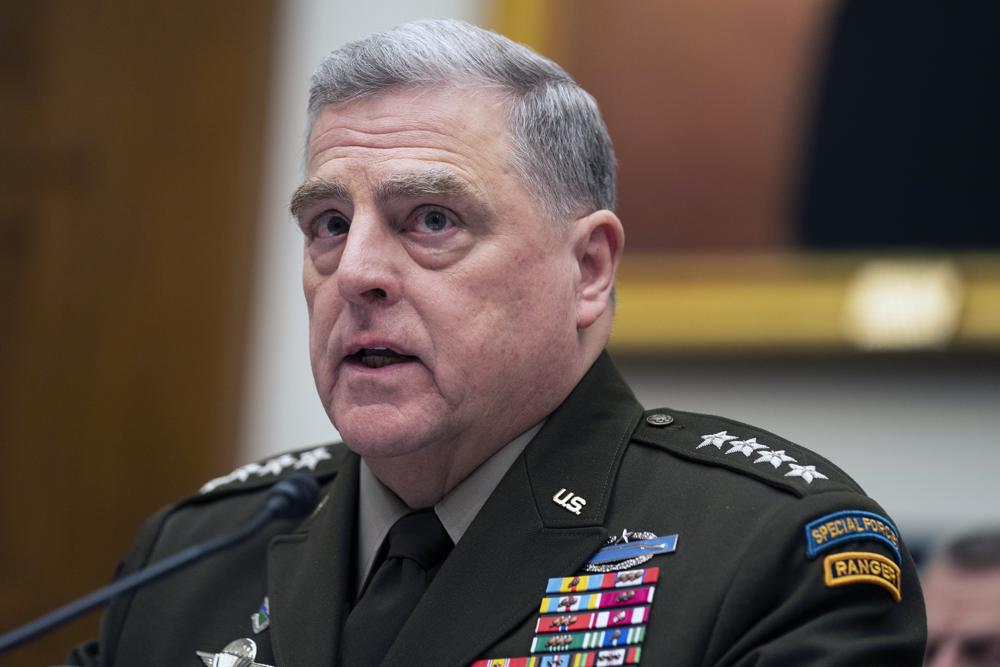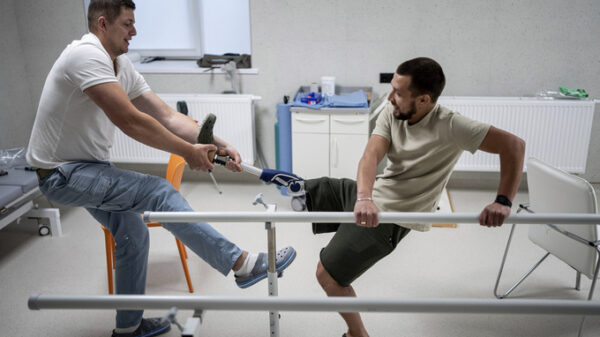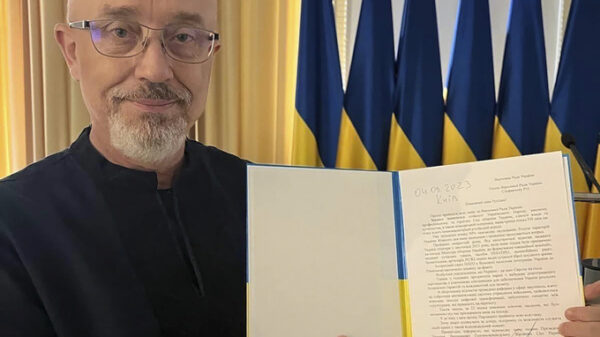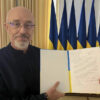Chairman of the Joint Chiefs of Staff Gen. Mark Milley speaks during a House Armed Services Committee hearing on the fiscal year 2023 defense budget, Tuesday, April 5, 2022, in Washington. (AP Photo/Evan Vucci)
WASHINGTON (AP) — The United States should look at the development of more bases in Eastern Europe to protect against Russian aggression, but rotate forces through them rather than make permanent deployments, the top U.S military officer told Congress on Tuesday.
Army Gen. Mark Milley, chairman of the Joint Chiefs of Staff, said the basing could be funded by other countries such as Poland and the Baltics that want more U.S. troops. Defense Secretary Lloyd Austin said any effort to expand security in Eastern Europe is a “work in progress” that probably will be discussed at the NATO summit in June.
Milley and Austin were testifying before the House Armed Services Committee on the 2023 budget proposal, but the early focus of the hearing was the Russian war against Ukraine and what the U.S. can do to better help Ukraine and strengthen security across Europe.
Milley was asked about the need to reallocate forces to Europe’s eastern flank, where NATO allies are worried that they may be Russia’s next target.
“My advice would be to create permanent bases but don’t permanently station (forces), so you get the effect of permanence by rotational forces cycling through permanent bases,” he said. “I believe that a lot of our European allies, especially those such as the Baltics or Poland and Romania, and elsewhere — they’re very, very willing to establish permanent bases. They’ll build them, they’ll pay for them.”
NATO Secretary-General Jens Stoltenberg announced last month that NATO is creating four new battlegroups, which usually number between 1,000 troops and 1,500 troops, to send to Hungary, Slovakia, Romania and Bulgaria. NATO allies are set to discuss additional security measures at the upcoming summit.
Milley has advocated using rotational forces more around the globe to defray the costs of permanently stationing troops and their families in allied countries at risk of war, such as South Korea and in the Persian Gulf. He said using this would eliminate some of the costs associated with schools, housing and other such services.
Rotational forces deploy for shorter periods of time. Permanent forces are often deployed for two years to three years.
Milley and Austin told the committee that the U.S. has learned a number of things as it has watched Russia struggle to fight against an unexpectedly fierce Ukrainian defense over the past month. They said Russia has significant military capabilities but has been unable to use them effectively.
Austin said Russian forces lack training among their noncommissioned officers and the Kremlin has been unable to get the supplies and logistics needed to ground troops
Austin said Ukraine has used Stinger and Javelin missiles effectively against Russian troops and weapons. Milley said that Ukraine’s junior officers, many trained by the U.S., have shown initiative and good command and control abilities.
Copyright 2021 Associated Press. All rights reserved.









































